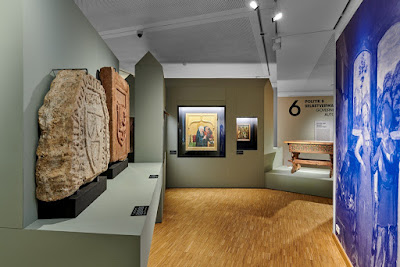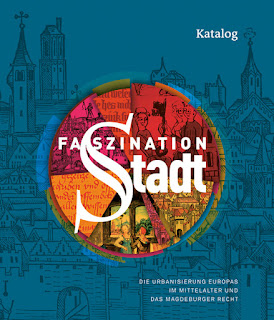The new exhibition of the Cultural History Museum is titled ‘Faszination Stadt – The Allure of Cities,’ and is dedicated to the network of medieval towns following Magdeburg law. The topic is broadly framed, starting with city development in antiquity – but then it focuses on the development and spread of Magdeburg town law in the Middle Ages. The Magdeburg law originated in the twelfth century and spread in the course of the German east settlement across Central Europe, particularly to the areas of Poland, Bohemia and the Kingdom of Hungary. It is a characteristic feature of urbanization in this regiou and its peculiarity is that it divided the local power between the council and a jury appointed by the ruler. This made it easier for territorial rulers such as the Teutonic Order in the Baltic States and the kings of Poland and Hungary to control the cities they established and granted freedoms to. The legal framework was provided by the Sachsenspiegel, codified in 1230, which was a summary of existing legal knowledge. Starting from the story of Magdeburg law, the exhibition presents the legal framework, the day to day operations and daily life in medieval towns of Central Europe.
The 250 objects on view are varied, ranging from luxurious gift items to objects of daily life. Given the subject, it is not surprising that a large number of loans from Hungary and the neighboring countries are featured in the exhibition. The exhibition is accompanied by an 800-page catalog and by a volume of studies dedicated to the topic. It remains on view until February 2, 2020. You can find more information on the special website set up for the exhibition or in the flyer provided by the museum.
 |
| View of the exhibition, with the tombstone of a painter from Buda (Budapest History Museum) |
The results presented in the exhibition rely on a research project coordinated by the Museum. A website was also set up to provide information about Magdeburg law – it is a very useful resource, providing, among others, a map of European towns using Magdeburg law.




